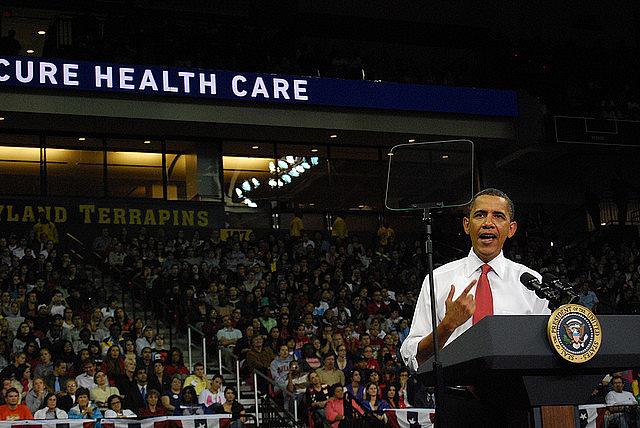Obamacare's top tests under way in Greater Cincinnati

Like health care reporters across the country, I spent the past year reporting on the early marketplace mayhem, analyzing the costs of new health plan offerings and narrow networks, while telling the stories of consumers both helped and frustrated by their options under Patient Protection and Affordable Care Act.
As the first wave of major reforms moved into full swing, it became clear that the region I cover is unlike any in the country. Greater Cincinnati spans a 15-county MSA that straddles three state lines: Ohio, Kentucky and Indiana.
Each state has embraced Obamacare with varying degrees of acceptance and rejection. That means neighbors living just a few miles apart have vastly different options, and possibly health outcomes, depending on which side of the state line they fall.
Consider the landscape:
Ohio: After much debate in the legislature, Ohio is fully implementing Medicaid expansion thanks to the support from Republican Gov. John Kasich – who made national headlines as one the few GOP leaders to stand behind this major health reform policy. However, the state has been largely hands-off with the launch of the new marketplaces, handing over its operation to the federal government.
Kentucky: One of the few states in the country where the smooth running of its state-run marketplace, kynect.ky.gov, has been touted by President Barack Obama as a model for the country. The state – known for decades for its failing public health - has also fully embraced Medicaid expansion. But the state isn’t without challenges. Controversy is building over new Medicaid managed care plans, and insurance offerings on the new marketplace that limited options for in some of the most underserved residents in the Bluegrass.
Indiana: A state that has let federal government run its exchange and rejected the ACA’s offer to expand Medicaid, Indiana now has thousands of poor residents in a coverage gap that marks them ineligible for the joint state-federal health insurance program and also unable to qualify for tax credits through the marketplace. Meanwhile, in Southeastern Indiana, only one insurer is selling marketplace plans – and they all exclude the top health systems – just miles away in Southwest Ohio.
As the second wave of Obamacare unfolds, I remain full of questions about these major tests in health reform. I'm looking forward to exploring them over the next year thanks to the National Health Journalism Fellowship and Dennis Hunt Grant.

